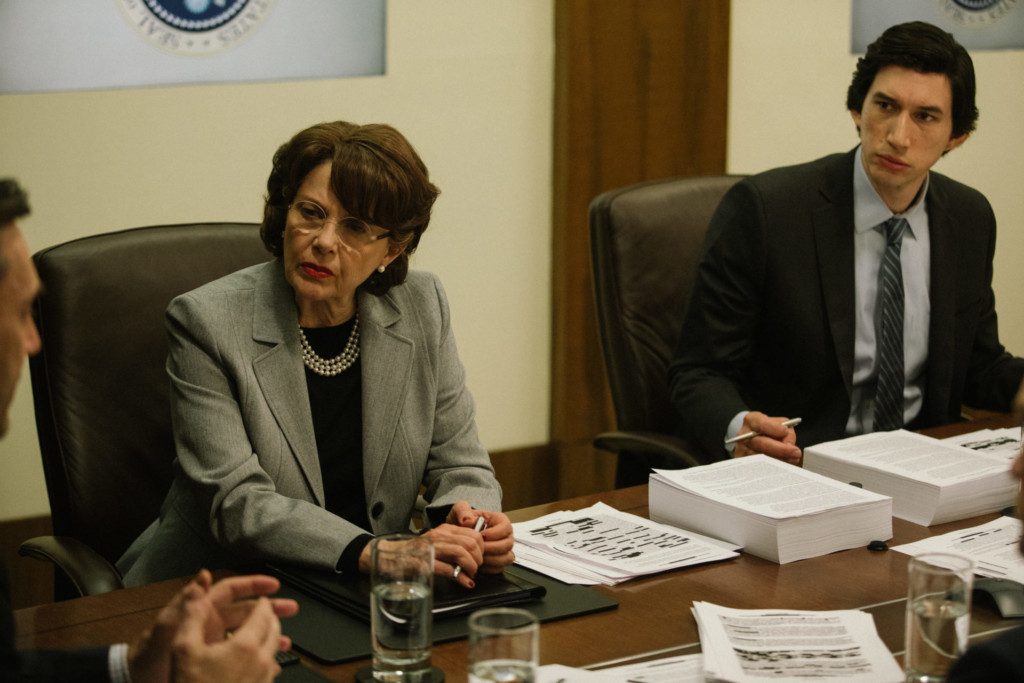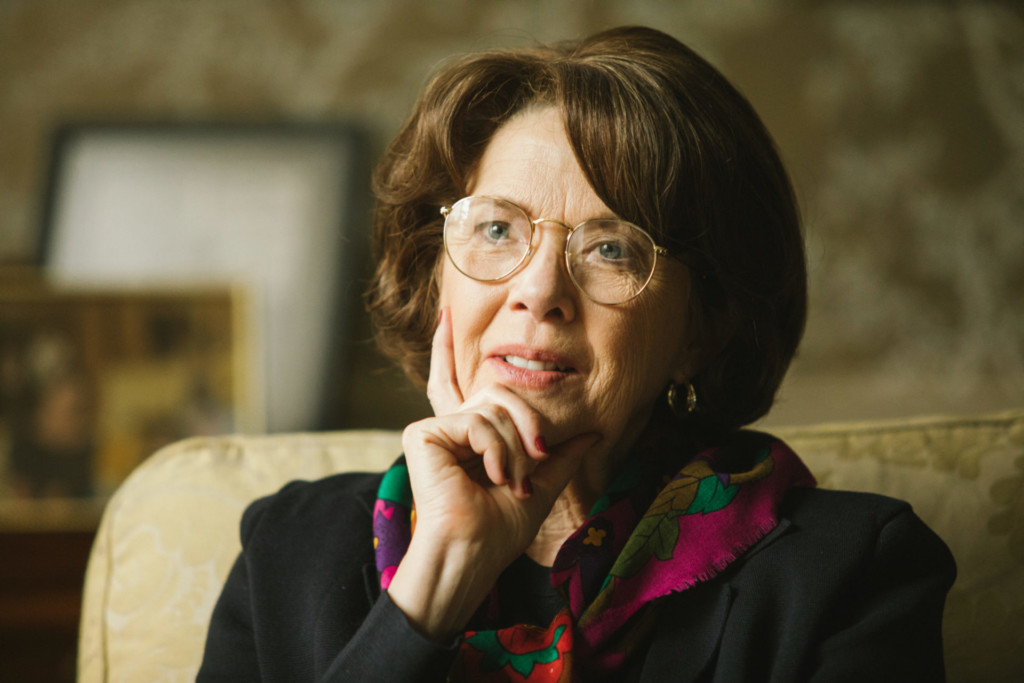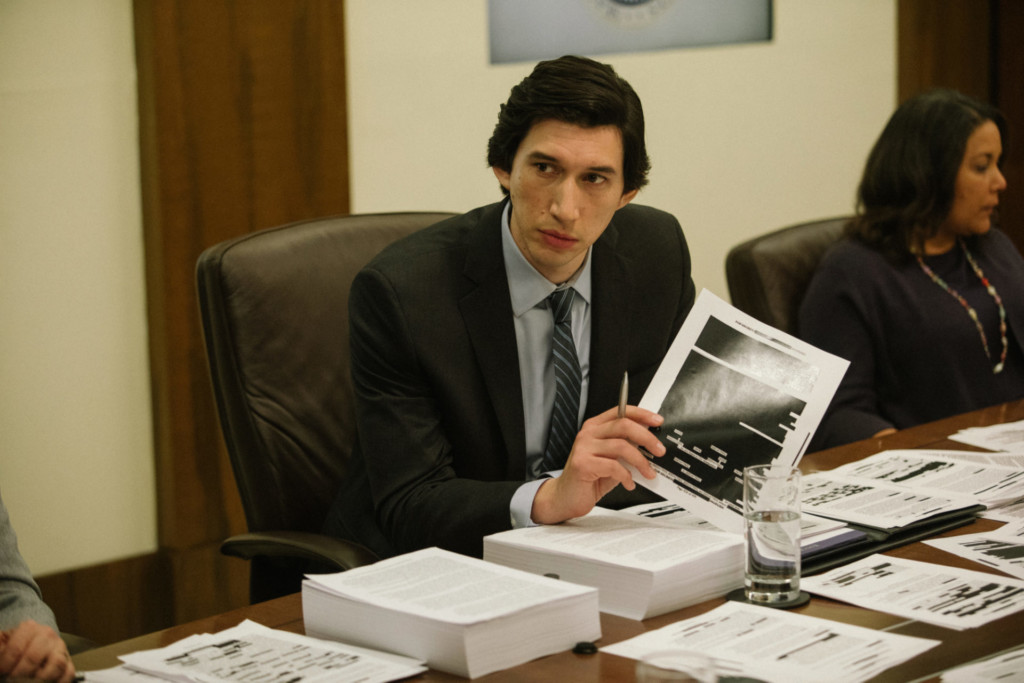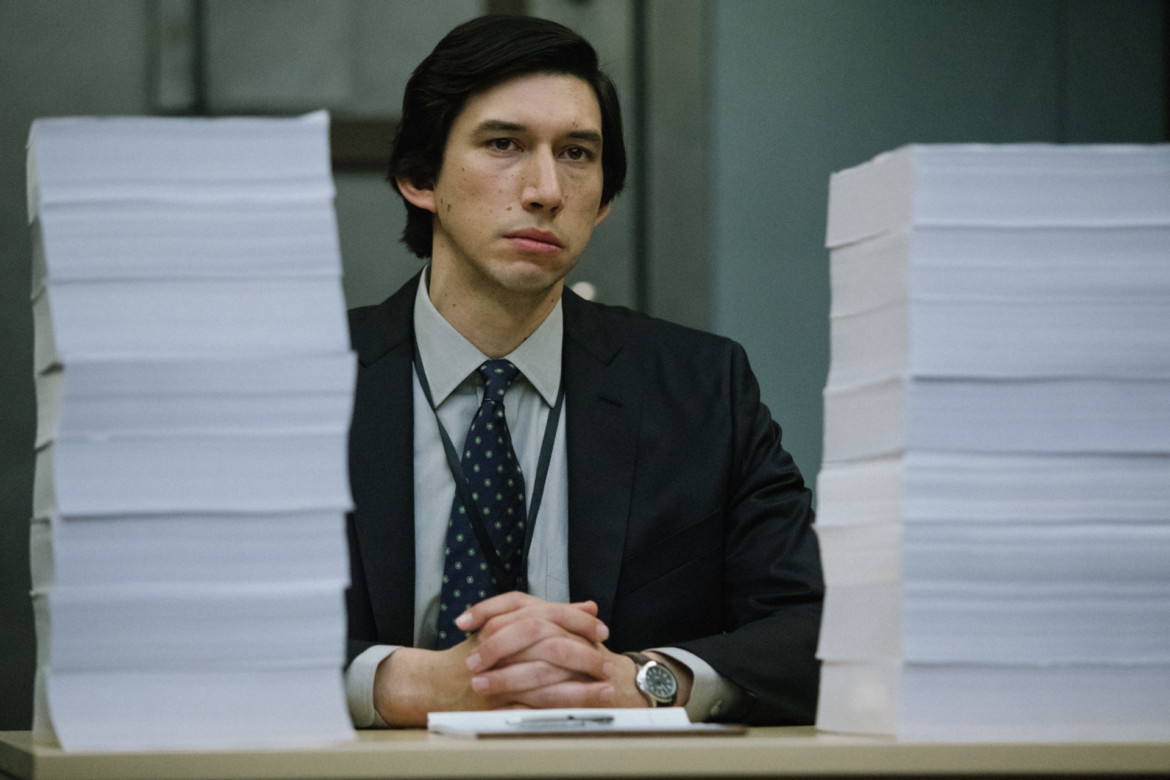By Kirsten Coachman
The truth, while not always comfortable, matters. That’s just one of the many takeaways from Scott Z. Burns’ new political thriller, “The Report.” Based on actual events, the film follows Senate staffer Daniel J. Jones (Adam Driver) who led a full-scale investigation looking into the CIA’s Detention and Interrogation Program at the behest of his boss Senator Dianne Feinstein (Annette Bening) As Daniel digs into millions of documents supplied by the CIA, he eventually uncovered what many would consider to be one of the most heinous scandals in recent U.S. history.
Consulting with more than 100 sources during the making of the film, including the real-life Daniel J. Jones, senators, staffers, other government officials, and journalists, Burns crafted a captivating film firmly rooted in the details and facts surrounding the investigation and the subsequent struggle over Jones’s findings seeing the light of day.
Academy Art U News recently sat down with Burns and Jones to learn more “The Report.”

My understanding is that the film began with a Vanity Fair article about the two psychologists hired by the CIA that had piqued your interest and led you to call Senator Feinstein’s office to connect with Daniel. What was your first meeting and conversation like?
Scott Z. Burns: Well, there were a few phone calls where I was asking him about the report. I had really tried to prepare for those phone calls and not embarrass myself as some sort of Hollywood screenwriter who just wanted to do the most superficial treatment of this. And eventually, after a few phone calls, we found ourselves in New York at the same time. And I asked him if he would consider getting together. And I’m always sort of curious about the experience of people who have a job as an investigator. I think to me as a screenwriter, it’s fascinating to learn how other people assemble stories and how narratives percolate through our society. And when Dan told me the story of doing the actual work of making this document, I decided that that was a much more compelling story because it took the shape in my mind of a political thriller in the spirit of Alan Pakula or Sidney Lumet, those are heroes of mine, and I thought it would be great to try and Trojan horse this story inside of a genre that I think we’ve kind of neglected in recent years.
Did you approach the meeting as an information gathering or was it to let him know you were thinking about writing about this time in history?
SZB: Going into it, it was really more about finding a through-line through this whole program. And so I had some awareness of the program, but it’s so sprawling and there are so many tangents and rabbit holes to go down. And I’d been wrestling with it on my own for a couple of years. And so it was great to meet the guy who had really gone through what I had gone through in terms of how do you turn this into something that you can explain to somebody in a couple of hours?
So once the report’s out and you’re starting to talk about it and open up about it, what was your kind of reaction about putting it on potentially putting it on screen and having your story told in that way?
Daniel J. Jones: This was based off 6.3 million pages of documents and it was a massive challenge to get that down into a 6,700-page report. It has 38,000 footnotes to the CIA’s own records. And then we were asked to put that into an executive summary. And that was a huge tasking, right? Go from 6,700 pages to a little bit over 500 pages. And I thought that was it. Then Scott came along and managed to summarize it even more effectively in a two-hour film. I’m super proud of what Scott did and the rest of the cast did and able to tell this story, not only of the contents of the report itself but the process of writing it in two hours is kind of just absolutely magical and incredible to me.

You have two dynamo actors in the film, Adam Driver and Annette Bening. What were you looking for when casting? What did you want your lead actors to be capable of in embodying both Daniel and Senator Feinstein?
SZB: Well, the challenge for this as a piece of entertainment, because I wanted to make something that was first and foremost entertaining because if you don’t hold people’s attention, you can’t possibly tell them the story. One of the things I went through when working on the script was I did a lot of table reads with friends who were actors, so they could hear it out loud because there aren’t any car chases in this. And there aren’t love scenes in this. So all I really had was my actors.
Annette was somebody who I sent the script to very early on and she read it and we had a meeting and I didn’t know this, but she is very engaged in American politics, knew the story really well or actually she said, “I thought I knew the story really well and I read your script and I realized there was so much I didn’t know.”I think that captured her curiosity.
And then Adam came to me by way of Steven Soderbergh. He had just finished working with Adam in “Logan Lucky” and he said to me, “I think Adam exhibits the same sort of work ethic and curiosity about the world that Daniel Jones has on the page as you’ve written him.” Steven sent the script to Adam and he and I had dinner and he said the same thing. He said, “I was in the Marines after 9/11. This was something that I feel I had some peripheral awareness of, but when I read your script, I was almost embarrassed at how much I didn’t know.” The other thing I’ll say is when you realize that the only thing you’re going to have in a lot of your movie is people talking to each other, you have to sort of keep the bar that high across the cast. So when I found people like Jen Morrison and Maura Tierney and Jon Hamm, who’s incredible, and Matthew Rhys and Corey Stoll and Tim Blake Nelson, and Michael C. Hall, who was really wonderful in the movie, Ted Levine—I knew that I had to make sure at every amping up of the story, I had sort of a new reward for the viewer, so that they would continue to lean in.
Daniel, in talking with Adam, what kinds of questions did he have for you and was there anything in particular, that you wanted to make sure he was able to convey through his performance?
DJJ: Adam and Annette and John and the whole cast were really interested in the story they felt they knew and the actual story. So they were filled with questions. And what was magical about Adam and the others is they didn’t just want to know their lines, they wanted to understand the lines and the context of the lines. So I got a lot of questions about the content of the report itself, which was lovely and as well as the process. They wanted to make sure that we were getting it right. It’s not a documentary, but it does hold very close to the facts. … It’s a very well researched and really just a fantastic job of getting it right.
One of the big things with this film is that there’s a lot of information that you’re presenting to the audience, as the character of Daniel Jones is uncovering things in his investigation. What was the challenge in figuring out how you were going to disseminate information to the audience in a manner that would be easily digestible?
SZB: That is the big one. I think you have an obligation as a storyteller to take a giant step backward when you get into the edit and even though you know the story so well by that point, you have to forget that and you have to say, “Okay, if I was coming to this with fresh eyes, how do I tell this story so that people aren’t lost?” And I think there’s a really interesting component to filmmaking, which is when do you allow yourself to get ahead of the audience? You never really want the audience to get ahead of you. So how far ahead can you get and still keep them engaged and how long can you go before you have to pay off an idea that you’re setting up? The axiom in screenwriting is: get into a scene as late as possible and get out as early as possible and answer the question in the next scene. And that was really the discipline that Greg O’Bryant and I took into the edit and we did everything we could to help the audience have guideposts along the way. And it’s really a big testament to him that he was able to help me get that across.

I wanted to talk about the importance of language in this film because there’s the scene between Daniel and his lawyer and they talk about relocating the CIA’s report versus maybe taking or removing. So how important was the use of language in your respective worlds as well as the film?
DJJ: There is that scene where it’s like, “No, I relocated it,” but let’s just talk about the term “Enhanced Interrogation Techniques.” Had they said, “Hey, we’re going to engage in torture,” you probably would’ve gotten that far, but they rebranded it: let’s call these “interrogation techniques.” Well, they’re not normal interrogation techniques. Should we call them “strong”? Should we call them almost “unlawful”? No, let’s call them “enhanced.” The importance of words, that great scene that Scott wrote with Corey Stoll and Adam talking about that and the narrative of what it means. It’s just really a fantastic, illuminating scene.
SZB: Obviously as a writer, and someone who spends his days wrestling with language, that was a big part of my interest in this. There are little moments throughout the film that I hope people get, which are moments like the term enhanced interrogation or at one point T. Ryder Smith who plays Dr. Bruce Jessen talks about working with people in actual simulations, which is an oxymoron. We allowed somebody who had only really worked in an actual simulation to represent our country at a time when we were really concerned about our safety. That sort of very Kafka-esque doublespeak is something that I’ve loved in films going back to “Catch-22.” Corey Stoll really did a great job with a line that I thought was really important in the movie, which is the language is built to choose sides. And that’s really a big part of what happened here. That someone would call something an “enhanced interrogation” and someone else would call it “torture” is really, to me, at the heart of the matter
There’s a quote from Steven Soderbergh in the press notes where he says “it’s not a left or right movie, it’s a right or wrong movie.” Do you see “The Report” being a reinforcement of just how important the truth is, as well as bipartisanship?
SZB: The mission that Dan was sent on was a bipartisan mission. The Senate voted 14 to one for him to investigate that deeply. And that to me is both very compelling and also heartbreaking, because I can’t think of a single thing right now that could happen in this country where we could get a 14 to one response. That’s in the film very purposefully to remind people that not that long ago, we were able to behave that way. Beyond all of that, I think we have an unfortunate tendency to look at history in a very episodic way, rather in a continuous way. And the fact that the failure of accountability for this program, I think has to be something where we’re seeing the knock-on effects of it today.
What were your personal takeaways from the making of the film?
DJJ: Obviously this is not my world. What I was sort of taken by was just the seriousness to which the entire filmmaking team brought to this right in the very beginning. Scott and the producers wanted to make it factually accurate. And then, of course, you have the talent, the actors, who all were deeply immersed in the material and felt a passion of getting out. And then even all the way down to the crew who were asking questions, some of which were quite young at the time and didn’t live this and wanted to know, “Hey, this really happened? Tell me more.” Re-engaging people on this issue to make sure that it never happens again is something that’s really important to me. While it was filming, you were seeing, “Oh, this is going to make a big impact.” And I think Scott’s just put together a fantastic film that is going to help on that mission to make sure this doesn’t happen again.
SZB: To me, this was a movie that Hollywood passed on repeatedly. We were very fortunate to finally cobble together financing and get it made. We made the movie in 26 days, which is an absurdly short, tight schedule. Most movies are done in twice that many days. Our initial budget was $18 million. We ended up having to make it for eight because that was all we could scrape together. Annette and Adam worked for scale, which is unheard of. And because they did, all the other actors did as well. I think the lesson in it for me and what was so gratifying is to realize that there are people in my community who want to tell these kinds of stories. I think the reward of doing something purposeful is so important. I really wish that for people when I think about if you have a guitar, if you have a paintbrush, if you have a blog and you see stories like this in the world, I hope that this inspires people to tell them.
“The Report” is now playing in San Francisco.
This interview has been edited for length and clarity.
